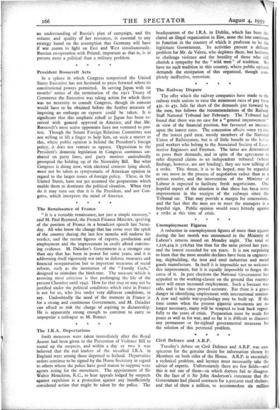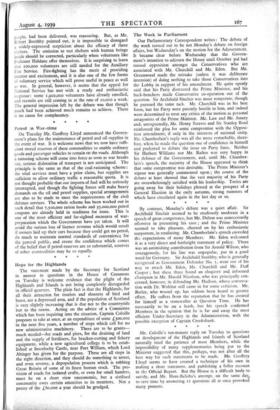Civil Defence and A.R.P.
Tuesday's debate on Civil Defence and A.R.P. was con- spicuous for the genuine desire for information shown by Members on both sides of the House. A.R.P. is essentially a technical problem, and laymen must necessarily take the advice of experts. Unfortunately there are few fields—and this is not one of them—in which doctors fail to disagree. On the face of it Sir John Anderson's statement that the Government had placed contracts for 2,500,000 steel shelters. and that of these a million, to accommodate six million people, had been delivered, was reassuring. But, as Mr. Robert Boothby pointed out, it is impossible to disregard a widely-expressed scepticism about the efficacy of these shelters. The omission to test shelters with human beings inside should be corrected, particularly when volunteers like Professor Haldane offer themselves. It is surprising to learn that Ioo,000 volunteers are still needed for the Auxiliary Fire Service. Fire-Aching has the merit of providing interest and excitement, and it is also one of the few forms of voluntary service which will prove useful in peace as well as war. In general, however, it seems that the appeal for National Service has met with a ready and enthusiastic response: some 1,900,000 volunteers have already enrolled, and recruits are still coming in at the rate of 20,000 a week. The general impression left by the debate was that though much had been achieved much remains to achieve. There is no cause for complacency.
* * * *









































 Previous page
Previous page